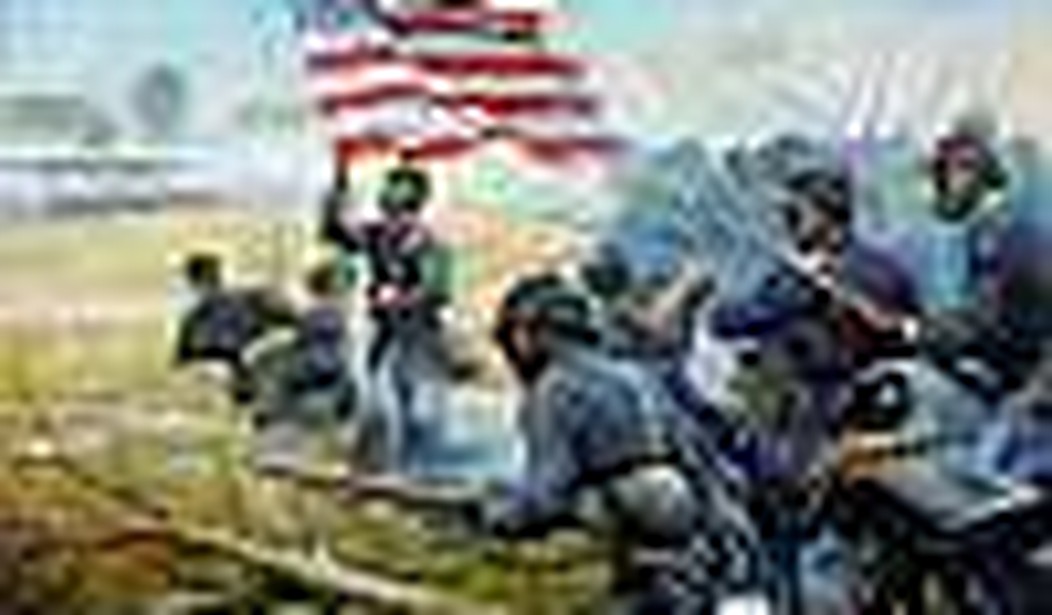You’ve probably heard statistics like this before: in a survey of 6,000 incoming freshmen at the nation’s top colleges, half didn’t know when the Civil War happened. Half couldn’t locate St. Louis on a map. Only six percent could name the original 13 colonies. And almost two-thirds — remember, this is among students going to top colleges — almost two-thirds got a famous 19th century author mixed up with a contemporary pop music icon.
It’s a familiar story, and it’s been in the news again lately: our kids don’t know civics.
At this point in an article on this subject, the standard procedure is to bewail the decline of education. For some, the decline in civics knowledge reflects the takeover of 1960s radicalism: love of country and respect for its values and institutions are no longer cool. For others, it simply reflects the decline of education generally: schools can’t teach math and reading any more, so why do we expect them to teach civics effectively?
But hold your horses. There’s been no decline.
The statistics I cited in the first paragraph are from a study conducted in 1943. The famous 19th-century author mentioned in the last sentence was Walt Whitman; two-thirds of freshmen at top colleges mixed him up with band leader Paul Whiteman, who declared himself “The King of Jazz.” And you can see why students got them mixed up — they look so much alike. (Hat tip to this Wall Street Journal reader for bringing the study back to public attention.)
It gets worse. Way back in 1917, researchers composed an American history test including items that history teachers thought “every student should know.” The test was thought appropriate to administer to students as early as elementary school, since it contained what the researchers called “the simplest and most obvious facts of American history.” They gave it to students at all levels from elementary school to college, to see what would happen.
The college students scored 49 percent.
And when we look at these past surveys of civics knowledge among college students, we have to remember that a lot fewer people went to college back then. It was the top performers — the cream of the national crop — who thought Walt Whitman was the King of Jazz.
Maybe this shouldn’t surprise us. After all, there’s no evidence that math and reading skills have gone down, either. As far back as we have reliable measurements (which, unfortunately, is only back to 1970), math and reading outcomes for 12th graders are flat. So are graduation rates.
The school system now consumes more than twice as much money per student (after inflation) as it did in 1970, while producing all the same outcomes, so clearly the system is growing more and more dysfunctional and is headed toward a major crisis. But a decline in outcomes is not the problem.
Clearly the failure of civic education does not mean the nation is about to have an existential crisis. If that were going to happen, we’d have had it long before now.
On the other hand, just because the school system’s failure has been going on for a long time doesn’t mean it isn’t a failure. And school failure always has consequences.
Just think how much better American life might have been over the past century if we had been a nation of citizens who knew what citizens ought to know, rather than a nation whose schools failed so miserably and so consistently at their jobs. Would fewer people have succumbed to the siren song of isolationism in the 1930s, while Hitler and Stalin built their empires of mass murder and Mao took control of the Chinese revolutionaries? Would the triumph of the civil rights movement have come sooner and with less toil and bloodshed, and left behind fewer of the unresolved problems that still fester in our politics? Would there have been a clearer understanding of the nature of communism, meaning less denial and excuse-making for Soviet and Maoist atrocities, perhaps even leading to an earlier and more complete victory for freedom in the world? Who can say what horrors we might have avoided if our citizens had all along understood the intellectual and historical foundations of liberty?
Moreover, if the failure is so long-term, we can’t attribute it to transitory phenomena like 1960s radicalism. We have to expect it to be rooted in the basic structure of our educational institutions — whatever we’re doing wrong, it’s something we’ve been doing wrong for at least a century.
Lo and behold, when we search the empirical research for evidence of what might be causing the problem, that’s exactly what we find.
It turns out schools that possess one very specific characteristic surpass all others in teaching civics. Students at these schools are regularly found to be more likely to respect the political rights of those they dislike, have better political knowledge, participate more in the political system, and volunteer more often. This is established by empirical research using top-quality methods that can isolate the influence of schools from other factors like family influence and self-selection.
Which schools are so consistently associated with better civic education? Private schools.









Join the conversation as a VIP Member